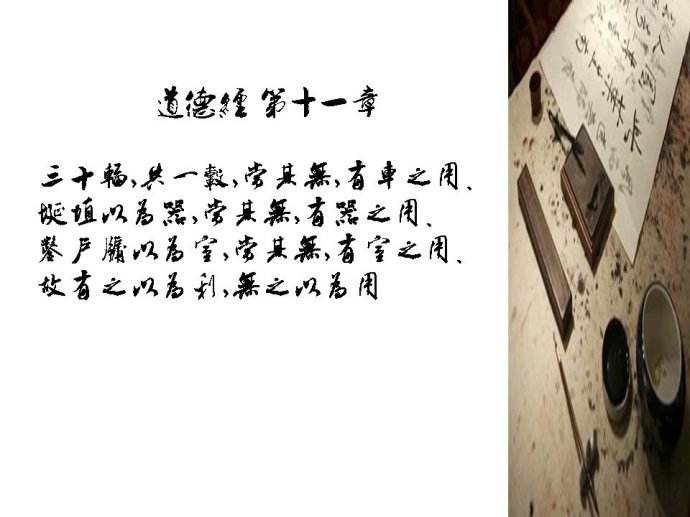Chapter 11
第十一章
The thirty spokes unite in the one nave; but it is on the empty space (for the axle), that the use of the wheel depends.
三十輻共一轂,當其無,有車之用。
Clay is fashioned into vessels; but it is on their empty hollowness, that their use depends.
埏埴以為器,當其無,有器之用。

The door and windows are cut out (from the walls) to form an apartment; but it is on the empty space (within), that its use depends.
鑿戶牖以為室,當其無,有室之用。
Therefore, what has a (positive) existence serves for profitable adaptation, and what has not that for (actual) usefulness.
故有之以為利,無之以為用。











